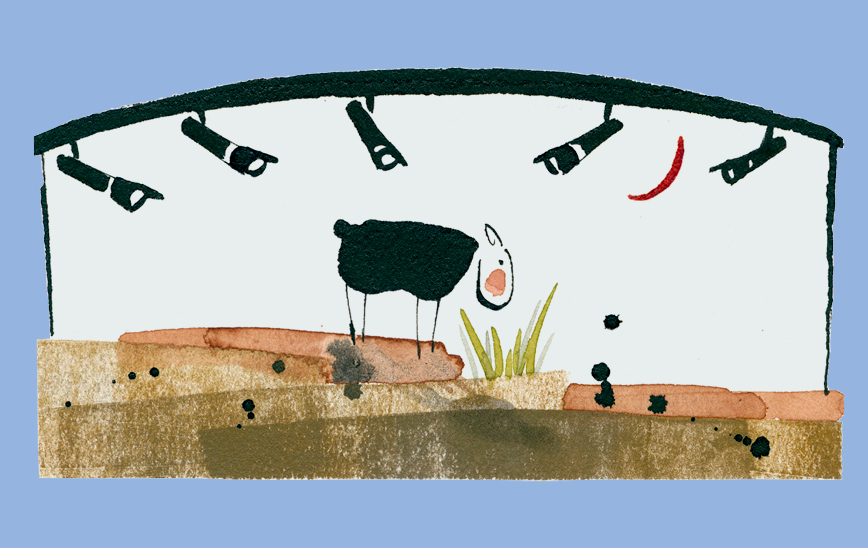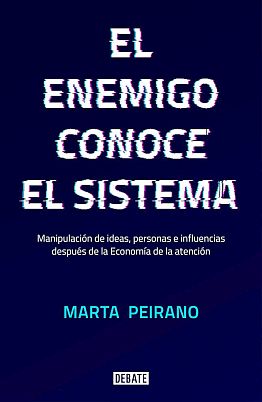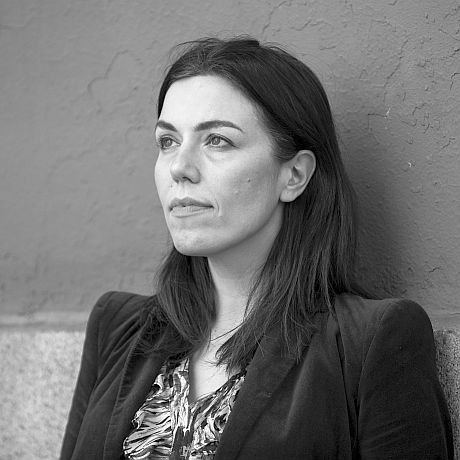The contradictions of an undecided democracy
- Dossier
- May 20
- 11 mins

The reaction that countries have in the wake of the coronavirus crisis will reveal a great deal about the sort of democracy they have. Weak democracies will repeal civil rights and empower their leaders, and the strong ones will gain the trust of their citizens by means of direct, simple and logical information. We will soon find out which category our country is in: whether democracy will come out stronger from the pandemic or whether, on the contrary, it will embark on its path to self-destruction.
The use of geolocation data for quarantine control in the absence of diagnostic tests generates the same kind of cognitive dissonance as the information on the use of face masks, with which it is closely related. Can it be explained to citizens that face masks don’t protect them from the virus and, at the same time, that the masks must be left to doctors and nurses so that they can work without putting their health at risk? Masks are used to prevent patients from spreading the virus; however, does it make sense for us all to wear them even when we do not know who is infected and who isn’t? When it comes from the mouths of our government delegates, misinformation is especially destructive, and not just because it will be repeated in the media. Democratic governments that lie to citizens destroy their credibility for nothing and make the work of professional indoctrinators easier. What is the use of fact checkers when the official source has been contaminated?
Although Western countries have become obsessed with surveillance applications, the key lies in emergency protocols.
The World Health Organization (WHO) has congratulated Taiwan, Singapore and South Korea for their exemplary actions in the local mitigation of the pandemic. The governments in Asian countries instigated action as soon as China reported the existence of the virus and managed to prevent thousands of deaths without completely crippling their economy. Although Western countries have become obsessed with surveillance applications, the key lies in emergency protocols. When the first local infected people emerged, South Korea ensured the production and availability of face masks and distributed them at cost price and in an equitable manner through pharmacies, which the prime minister called his “primary on-the-ground node in our public health system”. They also mobilised all the laboratories in the country to distribute the production of tests and to perform the diagnoses quickly without overburdening the hospitals.
Mobile stations were dispatched to undertake testing in the highest-incidence and most heavily transited areas: public transport, shopping centres and government offices. Geolocation data, bank cards and surveillance cameras were then used to track the movements of people who had tested positive and to alert all those with whom they had had contact so that they could be tested. An invasive but segmented procedure and strictly limited to the incubation and infection period. In short: technology was subject to an effective emergency protocol based on tests, face masks and information. Without these three things, technology is just an invasion of privacy.
Hong Kong used the kind of electronic bracelets used in house arrests to monitor a single class of citizens: those infected. Taiwan implemented diagnostic stations and used geolocation data to erect a “digital fence” that alerted police if anyone left the quarantined homes, while the rest of the population went on with a normal life. Ben Thompson, a Taipei-based American analyst, told subscribers to his Stratechery technology newsletter that the measures, albeit brutal, had been liberating compared to the total lockdown in other countries. “Kids are in school, restaurants are open, the grocery stores are well-stocked.” In early April, Taiwan’s figures were enviable: 348 infected and 5 dead.
Singapore launched an application that uses Bluetooth to identify people who have been within a two-metre radius of an infected person for at least 30 minutes. It is voluntary and does not record the user’s identity or location, but for it to be effective, it must be used by at least three-quarters of the population. A coalition of European countries has adopted this model and is implementing it as a post-quarantine strategy, as long as it complies with all the privacy guarantees required by the European Union’s General Data Protection Regulation. The original application is called TraceTogether, while the pan-European application bears a less attractive and more politically correct name: Pan-European Privacy-Preserving Proximity Tracing or PEPP-PT.
Our model of “analysis of people’s movement in the days before and during the crisis” is not similar to those of Korea, Singapore or Taiwan. If it resembles any, it is the model in the country where the pandemic originated, which is preceded by its social credit system. China does not require citizen collaboration because it is a dictatorship and it already knows who you are and where you have been. It just requires your obedience: if your phone is green, you can go outside; if it is yellow, it is seven days of quarantine; and, if it is red, it is longer. For us it is a bad example for more than one reason.
Monitoring citizens is easier than monitoring the virus, but it does not save more lives.
Surveillance as a symptom
Monitoring citizens is easier than monitoring the virus, but it does not save more lives. We cannot verify the veracity of the official figures emerging from China, one of the world leaders in misinformation. But we do know one thing: surveillance is as incompatible with transparency as dictatorship is with democracy. Following its traumatic experience with the SARS virus in 2003, China established an infectious disease surveillance system that connects hospitals directly with the central government to set the necessary protocols in motion to prevent an epidemic. But it didn’t work, because the very regime that had created it used its other surveillance network to prevent it from being found out. Public officials of the Wuhan regime did not want Xi Jinping to blame them for a new health crisis, and it was Xi Jinping himself who did not want the rest of the world to point the finger at him. The post-SARS infectious disease surveillance system was a good application, but it was designed for another operating system.

In a democracy, a state of emergency is justified when the threat is open, universal and existential, and measures must be proportionate and limited in time. Compared to the action of other countries, it seems disproportionate to extend surveillance to the entire population because it is not known who is infected. Nor do we know how long we will be under surveillance or will there be any way to check if it has stopped when the lockdown is over. Authorities who resort to surveillance at times of crisis are always reluctant to give it up later. At best, it is a very bad symptom. All crises — be they health, economic, environmental, or political — are like marital crises: countries with strong democracies will survive, having strengthened their democratic institutions, while countries with weak democracies will be destroyed.
The first example was Hungary. Viktor Orbán passed a law that will allow him to prolong the state of emergency due to a health crisis indefinitely, extending special powers outside the exceptional period. Suspension of Parliament, of freedom of the press, of elections, and so on. Returning to the metaphor of marriage, it is fair to say that no one gave a damn about this democracy. Some called it illiberal democracy, a deceptive and contradictory term that does no favours to democracy. Others described it as a hybrid regime: half democracy, half dictatorship. Orbán himself called it a “system of national cooperation”, a euphemism that we will see repeated in other countries with similar fortunes. I jokingly called it trans democracy, because it was transitioning to dictatorship. It is now the hole through which the European Union will disappear.
Israel has decided to use mobile phone operator data retroactively to monitor quarantined citizens. Another questionable democracy, with a territory occupied by citizens with no rights. It is now out of the question because Netanyahu has taken advantage of the health crisis to take over surveillance powers without parliamentary oversight, to block Congress and to postpone his own criminal trial.
In the UK, the Boris Johnson-led government has set up a coronavirus management panel in conjunction with Google, Microsoft and Palantir to help the British healthcare system to better manage resources. Microsoft will host the project on its cloud (Azure), Google will manage the data and the interface will be provided by Palantir, the company that helps the U.S. National Security Agency to hunt people abroad and the U.S. Immigration and Customs Enforcement to hunt down immigrants and refugees in the United States. According to Bloomberg, Palantir has also offered its services to France, Germany, Austria and Switzerland. Companies such as NSO Group and Cy4Gate, known for selling invasive technology to authoritarian regimes, have also offered their services to European democracies. We don't know who bought what from whom.
The alleged German anomaly
The PCR (polymerase chain reaction) diagnostic test analyses material from the back of a person’s throat or nose to detect the presence of the virus’s genetic material (RNA). The genetic sequence of SARS-CoV-2 was shared by Chinese authorities on 12 January, two months before the WHO declared a global pandemic. Charité University Hospital, linked to the Free University of Berlin and the Humboldt University of Berlin, used the information to design a test whose model was published on its website a few days later. When the first infected person was detected in early February, health authorities were able to test it in dozens of laboratories across Germany. Around 350,000 weekly tests were carried out in April, well above the European average.
Early detection of the virus significantly increases patient survival and eases the load on the emergency services.
Early detection of the virus significantly increases patient survival and eases the load on the emergency services so that they can also care for other kinds of victims, such as road accident or heart attack victims. It also serves to protect the integrity of healthcare professionals: German hospitals regularly test their doctors and nurses to ensure that their infections are detected and treated as quickly as possible. It was announced that a sweep of antibody tests would be carried out at the end of April so that people out of danger could return to work.
“Testing and tracking is the strategy that was successful in South Korea and we have tried to learn from that”, Hendrik Streeck, director of the Institute of Virology at the University Hospital Bonn, told the New York Times in an article on the “German anomaly”. They did not copy the surveillance technologies of the Asian country but its emergency protocol: testing, face masks and decentralisation of the production of critical material. They also showed the utmost respect for citizens’ intelligence in their communications. Since the outset of the crisis, Chancellor Angela Merkel personally informed the country of the government’s decisions from her home, offering simple explanations free of contradictions. And her Minister for Health explained that everyone should start wearing face masks, both to protect themselves and to protect others.
When there are information gaps, misinformation quickly fills those cracks with reassuring falsehoods.
Making mistakes without learning from them
Spain identified its first infected person in late January on the island of La Gomera. He was a German tourist. The first to die was a patient at the Arnau Vilanova Hospital in Valencia, on 13 February. The state of alert was not declared until 14 March. By the end of April, there were 38,000 infected healthcare workers as a result of working without protective equipment. When asked by the Minister of the Interior why Spain did not start buying the necessary material when they were warned of the gravity of the situation, Grande-Marlaska replied: “And why didn’t Italy start buying it?” And when asked why deaths in Germany were significantly lower than in Spain with a similar rate of contagion, the Director of the Centre for the Coordination of Health Alerts and Emergencies, Fernando Simón, said he could not provide an explanation. When there are information gaps, misinformation quickly fills those cracks with reassuring falsehoods: Germany is cheating when it comes to calculating the mortality rate; it was impossible to know. And believing them reassures us, but also prevents us from learning from our mistakes and improving our difficult situation.
The world we will find at the end of this crisis will be different to the one we left behind. It must be borne in mind that crises are opportunities, but not just for surveillance, authoritarianism and misinformation. Weak democracies will harness the crisis to undermine institutions, to repeal civil rights, and to empower their leaders. Strong democracies will make decisions that empower their institutions and their citizens, and will undertake the reconstruction of an economy that will help manage the climate crisis. The former will resort to war metaphors and will use force and punishment to make the population comply. The latter will gain the trust of their citizens by means of direct, simple and logical information. We will soon find out which category our country is in: whether our democracy will come out stronger from the pandemic or whether it will embark on its path to self-destruction. It is important to listen carefully and to reject contradictions, while we still can. Let’s not tackle this new darkness sheepishly.
Recommended publications
 El enemigo conoce el sistemaDebate, 2019
El enemigo conoce el sistemaDebate, 2019 El Pequeño Libro Rojo del activista en la redRoca, 2015
El Pequeño Libro Rojo del activista en la redRoca, 2015
The newsletter
Subscribe to our newsletter to keep up to date with Barcelona Metròpolis' new developments




